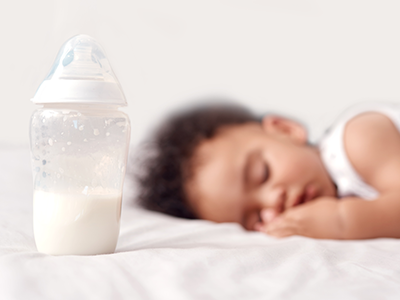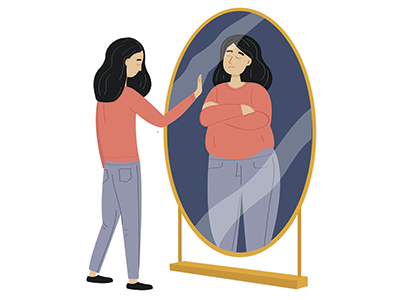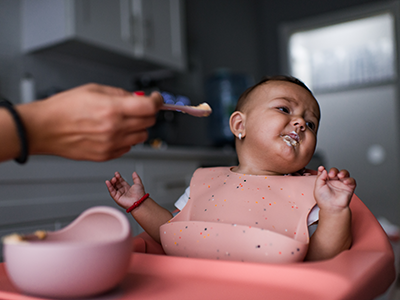The coronavirus pandemic has put a huge strain on all aspects of peoples’ health and well-being, including mental health and body image. Since March 2020, the National Eating Disorders Association (NEDA) has experienced a 40% increase in call volume to their helpline, and Children’s National Hospital has seen a surge in body image and eating disorders among adolescents.
While eating disorders have been relatively common in teens for decades, the coronavirus pandemic has exacerbated the conditions that sometimes lead to unhealthy eating. Kids are isolated at home, spending hours and hours on social media and not out doing the things they want to be doing. As a result, many young adults are exhibiting a low self-esteem which often leads to a disordered body image. With the loss of control that everyone has experienced during the pandemic, many adolescents have turned their attention to two things that they can control: their diet and exercise. While this can be healthy when done properly, at the extremes of control, it can be indicative of an eating disorder.
The most common types of eating disorders
Eating disorders include anorexia, bulimia, binge eating disorder, and avoidant/restrictive food intake disorder (ARFID). Although they can affect anyone, they’re most common among adolescent girls and young women. During the pandemic, there has been a sharp increase in the number of eating disorders seen across all demographics, including in males. These teenagers are presenting evermore frequently with more serious complications than seen before, so it’s important to monitor your kids and talk to your pediatrician if you think something may be off. If not treated, eating disorders can lead to damage to the heart, brain, kidneys, liver, digestive and endocrine systems, skin and other organs.
- Anorexia causes people to lose more weight than is healthy for someone at their age and height. People with anorexia purposely eat very little, tend to exercise a lot and have an intense fear of weight gain. People with anorexia may be always cold and often wear baggy clothes to hide their thin appearance.
- Bulimia involves regular episodes of bingeing (eating a large amount of food) followed by purging (ridding the body of the food through laxatives or vomiting). Unlike people with anorexia who have very low weight, people with bulimia may be thin, average weight or overweight. People with bulimia often hide their eating and purging from others.
- Binge eating disorder is a condition where someone regularly eats very large amounts of food. People with binge eating disorder may feel upset or guilty after binge eating, and they often gain weight and may become very overweight.
- Avoidant/restrictive food intake disorder (ARFID) involves avoiding foods or being uninterested in food. People with AFRID tend to lose weight or don’t gain the expected amount of weight.
What causes eating disorders?
There’s no single cause for eating disorders. Genes, environment and stress all play a role. However, there are some things that can increase a person’s chance of having an eating disorder, including:
- Poor body image
- Family history of eating disorders or anxiety
- Poor communication/conflict resolution at home
- Challenging relationships at home
- Perfectionism
- Puberty, especially in the transgender population
- Involvement in certain sports, especially the ones that put a lot of emphasis on weight, such as ballet, wrestling or gymnastics
Signs of poor body image and eating disorders
Body image refers to how we see ourselves, and a good body image is extremely important for good self-esteem. Body image can be affected by parents, media, peer groups, stress and anxiety and even changes that occur naturally during puberty. Being aware of how body image is affected and being alert for signs of poor body image in your child is important. Some common signs of poor body image and eating disorders include:
- Frequent scrutinizing in the mirror (also called “body checking”)
- Making frequent comments about their body and comparing themselves to others
- Excessive peer or celebrity comparing or envy
- Restricting food intake or dieting
- Irregular meals
- Cutting out certain foods or food groups
- Eating large amounts of food in a short time (binging)
- Compensatory behaviors after eating (purging) including vomiting, taking laxatives or exercising more to “burn off” the meal
- A dramatic change in weight
- Excessive exercising
- Missing or irregular menstrual periods
If you see signs of disordered eating in your child, you should bring in a health professional — pediatrician, therapist, counselor, nutritionist — to help evaluate what’s going on. Eating disorders are a subspecialty in every field, so if you need more help, you may be referred to eating disorder subspecialists. Getting help early on is very important to stop the trajectory before it gets bad.
How can I help prevent my child from developing an eating disorder?
There are many different reasons why young people develop eating disorders, most of which are outside of parental control. It’s important to remember that if your child does have an eating disorder it is not because you, as a parent, has done something wrong. There are some simple steps you can take as a family to help prevent your child from developing an eating disorder and ensure that if problems do develop, you will be able to catch them as early as possible:
- Have conversations with your kids about these issues on a regular basis.
- Check in with your kids to see how they are handling the pandemic and all the challenges that come with it.
- If your children are going through puberty, ask how they’re doing with the changes in their bodies.
- If your child is making a lot of comments about weight or appearance, check in with them about how they feel about their own body.
- Find out if your child is struggling with other issues related to low self-esteem
- Model good behavior, self-love and acceptance.
- Decrease talk about diets and weight loss both for yourself and your child. Work more on building healthy habits as a family.
- Make sure your children have structure and some semblance of control in their lives.
- Turn your child’s focus to what’s on the inside rather than the outside to help build self-esteem. Emphasize their unique strengths, like sports skills, problem solving abilities, sense of humor, empathy or musical talent, rather than appearance.
 https://riseandshine.childrensnational.org/wp-content/uploads/2026/01/healthy-family-feature.jpg
300
400
Rise and Shine
https://riseandshine.childrensnational.org/wp-content/uploads/2017/11/childrens_riseandshine_logo.jpg
Rise and Shine2026-01-28 13:02:522026-01-29 09:53:52Celebrate American Heart Month together: Healthy habits for the whole family
https://riseandshine.childrensnational.org/wp-content/uploads/2026/01/healthy-family-feature.jpg
300
400
Rise and Shine
https://riseandshine.childrensnational.org/wp-content/uploads/2017/11/childrens_riseandshine_logo.jpg
Rise and Shine2026-01-28 13:02:522026-01-29 09:53:52Celebrate American Heart Month together: Healthy habits for the whole family



 Nomi K. Sherwin, MD, is a fellow in the Division of Adolescent & Young Adult Medicine. Her areas of interest include global health, ethics, cultural competency, and education. She has a particular passion for educating families and primary care providers about adolescent-specific issues.
Nomi K. Sherwin, MD, is a fellow in the Division of Adolescent & Young Adult Medicine. Her areas of interest include global health, ethics, cultural competency, and education. She has a particular passion for educating families and primary care providers about adolescent-specific issues.


















Leave a Comment
Want to join the discussion?Feel free to contribute!